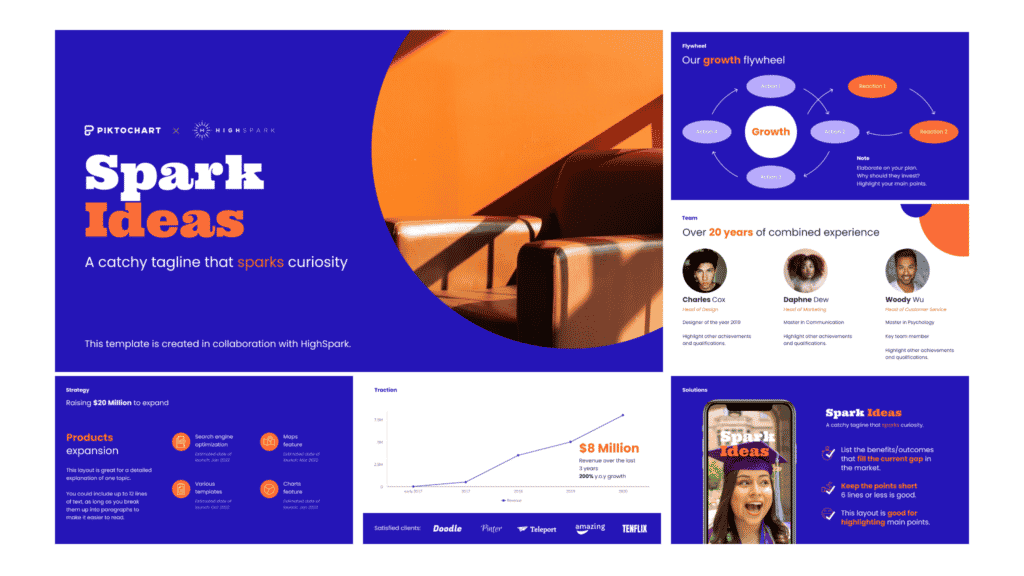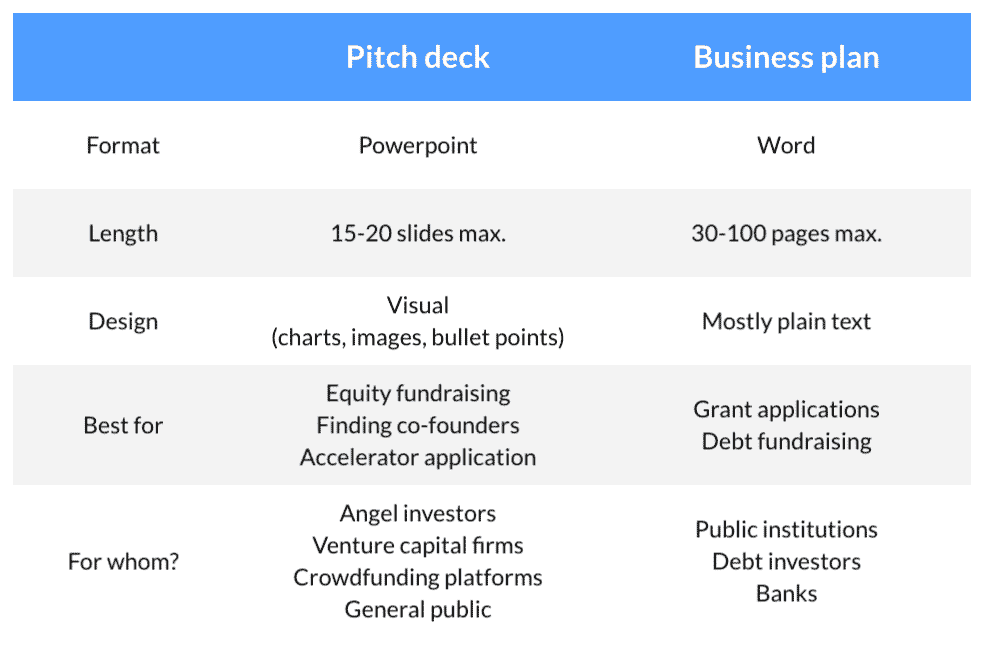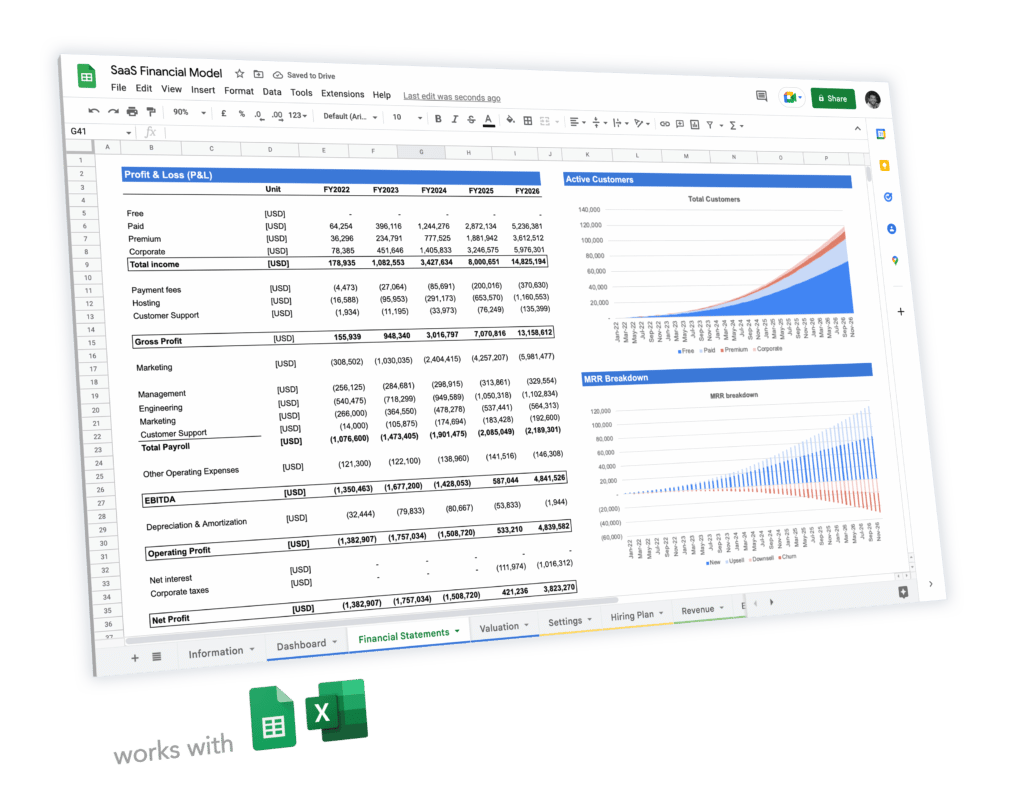Startup Business Plan vs. Pitch Deck: Which One Should You Prepare?

When it comes to raising capital, investors expect to receive very specific documents from founders to present the investment opportunity. And this for a good reason: VCs are said to spend less than 4 minutes in average per pitch deck. Preparing the right document is vital for investors to even dare looking at it.
You might have heard of business plan and pitch decks when raising capital for your startup. So, what’s the difference between the two? Which one should you prepare, and for whom?
In this article we explain you which one you should prepare if you plan to raise capital from investors. Read on.
What is a Pitch Deck?

A pitch deck is a presentation that summarises a company’s business plan. Often prepared using PowerPoint or Keynote, a pitch deck usually has 15 to 20 slides. It can either be used as a visual support for in-person meetings or sent as a standalone document to potential investors.
A pitch deck is not only short, it also follows a clear structure investors are used to. Read Guy Kawasaki’ and YC’s guides below to know which slides you should include in your pitch deck:
The goal of a pitch deck is to get investors’ attention and obtain funding. With a pitch deck, you summarise, in a few slides, where your business is today and where you are going.
Because pitch decks are trying to catch investors’ attention who often have never heard of the business itself, the presentation uses a lot of charts, pictures and limited text. Text should be limited to bullet points to make text as easy as possible to read.
It’s actually good practice to prepare 2 pitch decks: one for in-person meetings and another that can be sent as a standalone presentation. Indeed, when pitching investors (either via video or face-to-face) you should be the centre of attention. Whilst key information should be on the slide, most information should be voiced over instead. Else, investors would simply read your presentation.
If you are preparing a pitch deck for your startup, read our detailed guides and craft the best presentation.
What is a Business Plan?

A business plan is a long document that contains a detailed description of your business and business plan. Unlike a pitch deck, a business plan is prepared as a word document and often includes 30 up to 100 pages.
A business plan only is a standalone document: unlike a pitch deck, it should never be used as a visual support when presenting to investors.
Whilst a business plan includes charts, tables and images whenever relevant, most of the information is in plain text. Bullet points can be used, yet longer paragraphs are more common.
So, is a business plan a longer, more detailed version of a pitch deck?
Well, yes and no. Yes, because all the information included in a pitch deck should be in your business plan. No, because the business plan includes information that shouldn’t necessarily be included in your pitch deck. A few examples of pieces of information that aren’t required in your pitch deck yet a must in your business plan are:
- Employees and team structure
- Detailed tech stack
- Detail of suppliers
Of course, if you have prepared the information, you could include it in your pitch deck as an appendix. But remember, nothing too wordy either: sometimes less is better.
Which one should you prepare?
Whether you should prepare a pitch deck or business depends on your objective, and the type of investor you are targeting.

As a general rule, you should prepare a pitch deck if you are raising equity from venture capital firms, angel investors and crowdfunding platforms. These investors prefer (even require) pitch decks as they expect you to be able to sum up your investment opportunity in a concise, yet attractive 15-20 slides presentation. Indeed, VCs, angels and crowdfunding investors all have hundreds, if not thousands of investment opportunities to look at. Clarity and conciseness are key.
Government-funded grant applications often require a business plan instead. If you aren’t sure, read carefully their requirements as not submitting the right document might simply result in the failure of your application, without really knowing why.
Banks and other standard debt investors will also very likely ask for a detailed business plan. The simple reason is that debt investors accept a lower level of risk, unlike equity investors. Debt investors do not benefit from any upside (the startup valuation) but instead make money on the repayment of the debt and the associated interests. For downside protection they are simply requiring more documentation.
What if there is no clear requirements?
Prepare a pitch deck if there are no clear specific requirements. For instance, if the crowdfunding platform or angel investors website doesn’t list clearly which document(s) you should upload. Or if you have an email address to send your documents to without any requirements.
Why should you choose a pitch deck over a business plan when in doubt? For 2 main reasons:The person receiving your document for the first time will likely not spend 4 hours of their time to read through a 50 pages business plan. Instead, a 15 slides presentation can be read very easily (and quickly). The message you are trying to pass on is clear end-to-end. From what your business is, to your future strategy and the funding ask, investors get it under a few minutes
Preparing a 15 slides pitch deck takes much less time than a 50-100 pages business plan. Running a startup is already quite hard, focus your time on what’s best for your business. If you don’t need a business plan but a pitch deck instead, save some time. Less in better in some cases


 5-year pro forma financial model
5-year pro forma financial model 20+ charts and business valuation
20+ charts and business valuation  Free support
Free support